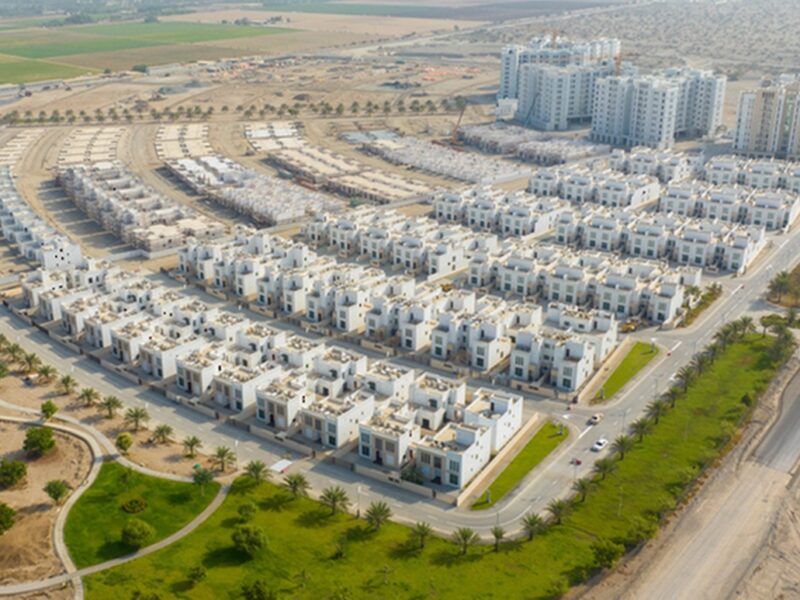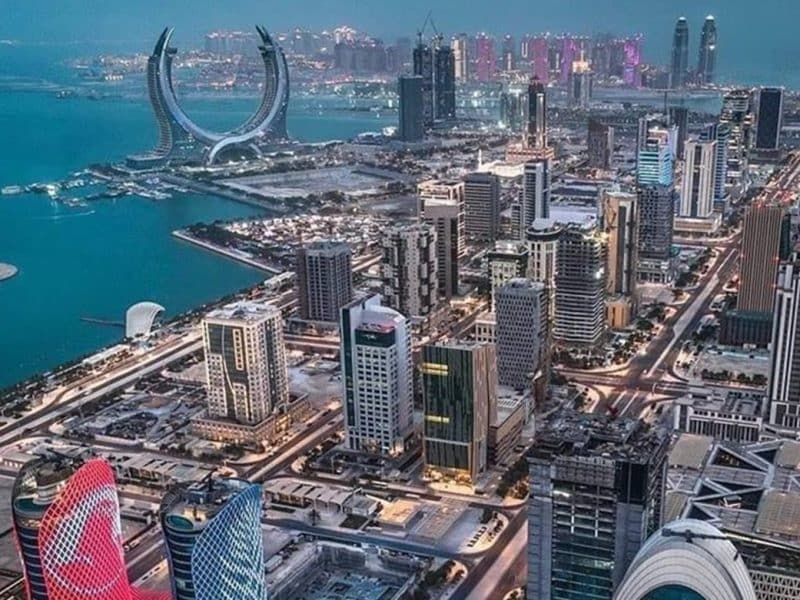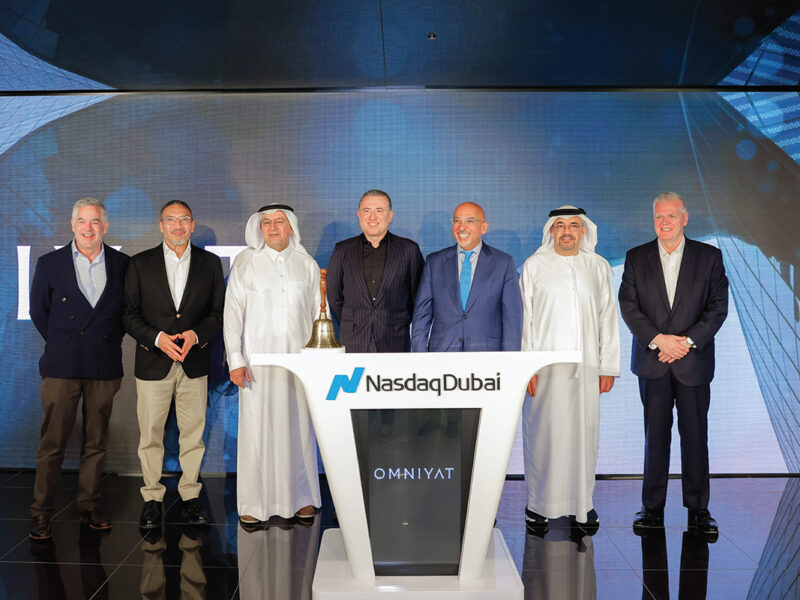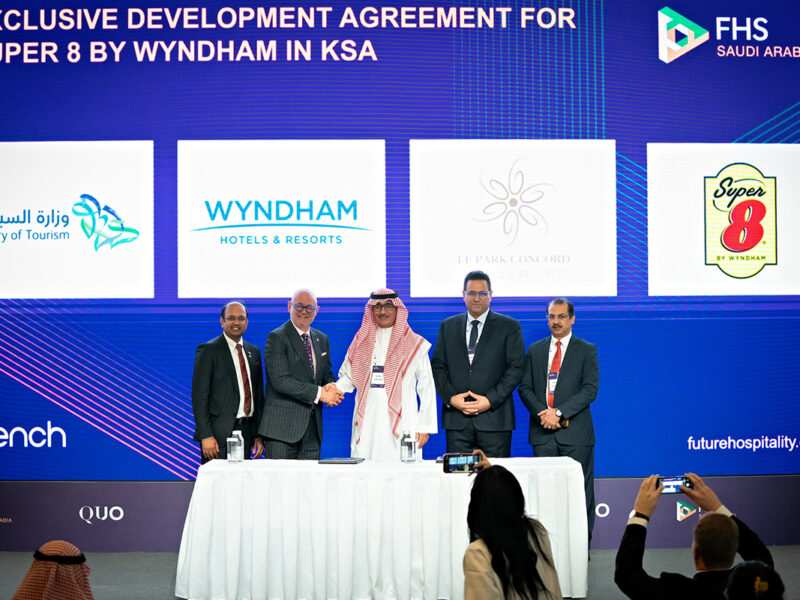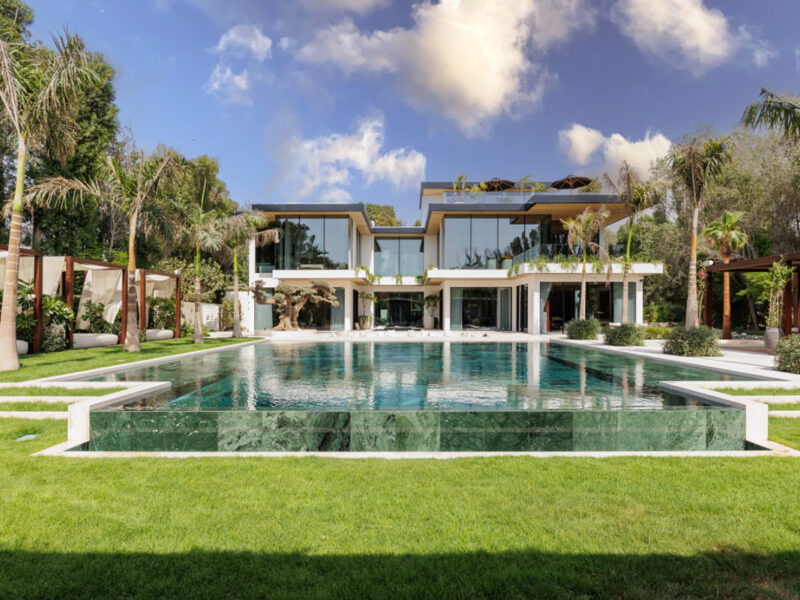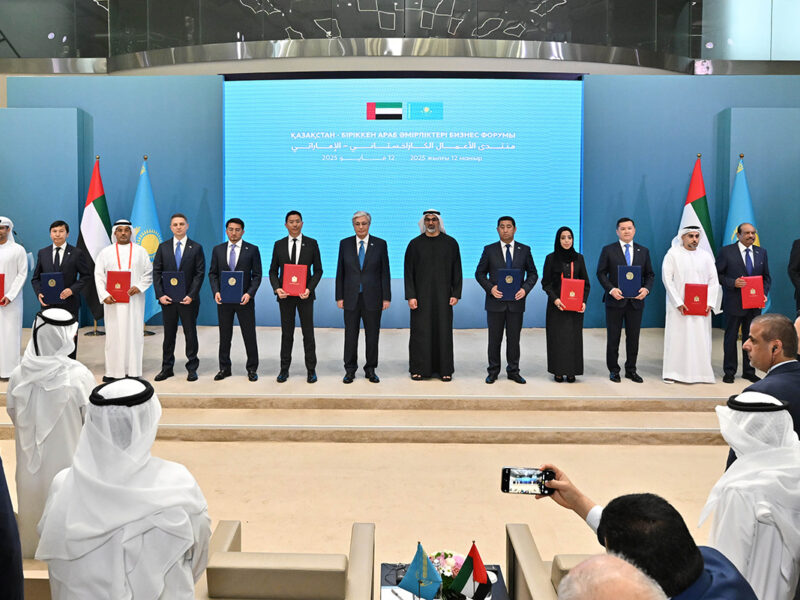Habib Al Mulla has a knack of predicting the future. Or perhaps he just knows himself well. Shortly after his firm announced in 2013 that it would merge with US-based Baker McKenzie that year, the Emirati lawyer told Arabian Business: “Relaxing is not my way. If anything, I am about to become far more aggressively involved in this business.”
Fast forward five years and he has proved himself right. Despite having overseen the UAE’s first and only successful merger of a local law firm with an international one, Al Mulla is hardly putting his feet up.
“People ask me how things have changed, and I reply, ‘Well, I was receiving around 20 emails per day before [the merger]; now I’m receiving 120 emails per day’. In fact, even though I initially thought my involvement in the practice would be less, I think I was deceived by this and the work came more and more,” he says, with the lightest of sighs.

The UAE plans to introduce more regulation as it continues to be a global hub for trade and finance
Joint forces
In the week Arabian Business meets Al Mulla this time round, he has just been appointed sole managing partner of the merged entity Baker McKenzie Habib Al Mulla’s three UAE offices, having been chairman for the past five years. Explaining why he took the more outwardly active role of managing partner, he says he brings in a sizeable chunk of new business (“I think this is my main value to the firm”), and heads up the fast-growing arbitration and litigation practices, which are soon to be combined under a general ‘disputes’ practice.
Under his stewardship, the firm plans to make other changes to reflect shifting market trends. This includes setting up dedicated IP (intellectual property) and tax practices this year and next, as value added tax (VAT) and other levies come into force. The firm also expects to create a technology practice as e-commerce and other aspects of the digital revolution take off in the Gulf.
For a UAE-based legal practice that built up a solid reputation over three decades through its core dispute resolution, corporate law, banking, real estate and construction work, this could be seen as a departure. But the firm has grown in leaps and bounds since 2013.
Baker McKenzie does not report regional financials so Al Mulla cannot disclose the merged entity’s performance this year. But he claims it outperformed the global firm’s 5 percent year-on-year growth for the fiscal year ending June 30, when Chicago-headquartered Baker McKenzie achieved record revenues of $2.67bn. At the time, the firm said it had promoted 80 new partners globally, including in the Middle East, taking the number of partners worldwide to nearly 1,600 as of July. For its part, Baker McKenzie Habib Al Mulla will have 17 partners in the UAE after it appoints a new head of regulatory practice later this month.

Baker McKenzie this month announced a number of strategic appointments as it expands its client coverage across the world
Back in 2013, Al Mulla’s team had just 40 lawyers when it joined forces with the 4,000-strong Baker McKenzie. For the merger to have proven a success to date – with the region a strong contributor to the firm’s billion-dollar annual revenues despite challenging economic conditions – is impressive. But Al Mulla is disarmingly modest. Asked about the firm’s main achievements since 2013, he says: “The most positive aspect of the merger is that it’s still alive. So many people were sceptical and said a merger of this nature is not going to survive more than a few months. They said it’s unprecedented. These were two different law firms, each with different cultures – an international one and a local one – it was really something that the whole region had never experienced before.”
The challenge of creating the new entity was compounded by the fact that mergers in any industry are tough.
“They do not always have a happy ending,” Al Mulla says. “They might start with a big high, then the different parties face realities and in many cases do not perform as well or at least the way the parties thought they would.
“So the fact that we’re still here; still opening offices, expanding, hiring new staff and attracting talent, shows that it was a really good decision taken at the right time.”
The main reason it has worked, Al Mulla says, is because “the UAE is a unique economy in the region that deserves a unique proposition – a platform of services that can accommodate the ever-changing nature of its economy.”

Baker McKenzie employed nearly 1,600 partners worldwide as of July 2017, including 17 partners in the UAE by the end of this month
“Who’d have thought in 2013 we would be exploring a tax practice? Or that investors would be looking at advanced technology right here in the UAE? Local law firms may do some things well, and international firms do others, but people ultimately need both,” he continues.
“They want a law firm with local roots, local access, local understanding and local culture. And, on the flipside, they need a firm with international expertise, procedures, regulations, access to markets and talents. This is what the merger is bringing to the table.”
In the Gulf, Baker McKenzie Habib Al Mulla remains the only such firm in the market. Al Mulla says there have been a few attempts to copy the local-international model over the years but nothing has yet come to fruition. Despite this, he claims this is the future of regional law firms.
“I believe these types of merged firms will not only exist but will probably have a kind of permanent presence with footprints in the legal market of the UAE and elsewhere in the GCC.
“But you need to find the right partner, the right time and the right formula,” he concludes, without giving away his trade secrets.
Growth drivers
Within Baker McKenzie worldwide, the EMEA (Europe, the Middle East and Africa) region accounts for one of the largest slice of revenues, at around 37 percent. The Americas also holds 37 percent while Asia has 26 percent. All the regions reported year-on-year growth of at least four percent, Baker McKenzie said in its results released in June. The UAE, at more than five percent, was a strong performer.

Dubai’s maturing economy has boosted law practice areas such as litigation, tax and technology, Al Mulla says
Al Mulla says he expects this upward trajectory to continue for the foreseeable future. “From the third year [of the merger] we have been healthy and seen significant growth. We do not see any reason for this trend not to continue.”
Growth in the UAE is being driven by three or four business areas, Al Mulla explains. First, disputes and litigation.
“We saw a big rise in disputes after the [global financial crisis] in 2009, 2010, 2011. Now it’s settled down a bit because back then, it was at a height that was not even normal. People are now focussing on tying up business deals rather than trying to recover debts, but it is still a huge practice.”
Second, financial crime is an important issue due to the increasing load of global regulations, with strong implications for legal practices, Al Mulla says. His view echoes that of his fellow UAE lawyer, Essam Al Tamimi, in an interview with Arabian Business last week. Baker McKenzie Habib Al Mulla is fortunate in that its US parent has a well-established fincrime practice from which it sends teams to assist with relevant cases in the Middle East.
“You need a strong practice to capture and resolve this work,” says Al Mulla. “It is something that can happen almost overnight, and in many jurisdictions at the same time.”
This month, the merged entity hired ex-Clifford Chance lawyer Matthew Shanahan as a partner in the banking and finance team to strengthen its fincrime and regulatory practice. Among Shanahan’s previous roles was a seven-year stint at regulator the Dubai Financial Services Authority (DFSA), where he advised on contentious regulatory matters, compliance and investigations.

Baker McKenzie has retained its position as the world’s strongest law firm brand in this year’s Acritas Global Elite Law Firm Brand Index
Third, tax is another area set to drive the firm’s growth – though Al Mulla says the introduction of VAT alone may not be as significant as if the UAE goes on to introduce other types of tax in future. “Then people will start to take this area even more seriously and we will see other [law firms] investing in this practice.”
His firm plans to launch a dedicated tax practice, possibly in the early part of next year, comprising one partner and supporting team initially, with scope to grow in the years ahead.
Al Mulla says he is not worried about the economic impact of VAT, saying it is the “natural collateral damage” of a maturing economy. He concedes it will be a “learning curve” for everyone, including the Ministry of Finance.
Finally, information technology will be a game changer for the UAE and its law firms. “We are going to see a lot of legal work surrounding it,” Al Mulla says. “Why? Well, we’ve got Tesla now, and autonomous cars; Hyperloop [rapid transit] technology that Abu Dhabi is investing in, the rise of e-commerce and the impact on consumer goods and logistics. This is going to be a huge area of growth.”
Al Mulla says it is not yet clear what precise shape this growth will take, but he would not be surprised if in the next five years firms have dedicated legal practices with partners specialising in technology. “You also cannot deal with it in isolation; it transfers into so many other sectors,” he reasons.
Towards Chapter 11
Of course, these fast-growing industries often require rapid legislative reform – something that is not easy in the UAE due to entrenched cultural traditions. Al Mulla says it is not enough to create different courts to hear different cases if there remain incomplete laws: “Whatever label you put on the jar is not going to make a difference; whether you call it salt, sugar, what matters is inside the jar,” he says.
But while he is confident that the UAE’s long awaited arbitration law is finally up to scratch following years of discussion and drafting, he is not so sure about the country’s equally anticipated new bankruptcy law, which came into effect earlier this year. “We haven’t seen much evidence of it being practised,” he says, choosing his words carefully. “And I think the success of a law is that it should be used.”
The new law, said to be based on ‘Chapter 11’ bankruptcy legislation in the US, provides traders with three options when in financial crisis – Restructuring, Preventative Composition and (declaring) Bankruptcy. However, it does not decriminalise bounced cheques.
It only offers courts the power to suspend legal proceedings in certain situations. At present in the UAE, anyone who issues a cheque that bounces faces criminal action under existing laws. Al Mulla says he believes this is the main reason that use of the law has been meagre.

Baker McKenzie reported record global revenues of $2.67bn in 2016
“We have not seen people resorting to the bankruptcy law and I think that’s because of the issue of bounced cheques – that it has not been fully abolished.”
“The bankruptcy law is more geared towards punishing people who fail rather than trying to protect genuine cases of failure,” he adds. “That’s why we have not seen the full impact of the law yet, and why people are still hesitant to use it to restructure their businesses. To put it simply, we do not have Chapter 11 here yet.” Still, the law was only enacted in the first quarter of this year, so its take up is likely to increase in the months ahead.
Despite Al Mulla’s confident growth forecasts for the firm, he says there are no plans for further international expansion, with Baker McKenzie already operating approximately 77 offices in around 45 jurisdictions across the world. The last Middle East office to open was Jeddah in 2014, he says, and “unless there’s another market that really calls for the existence of a new office there are no plans to open others for now”.
Al Mulla famously told media he never expected to pursue a career in law. Does he have any regrets? He says he does not, and when asked what he once wanted to be instead, the mild-mannered Emirati says he cannot even recall that, nor imagine anything else.
The multitudes of businesses that make the UAE their home are surely better off, legally speaking, with Habib Al Mulla at the helm – and they should count themselves lucky he did not pick another career.

